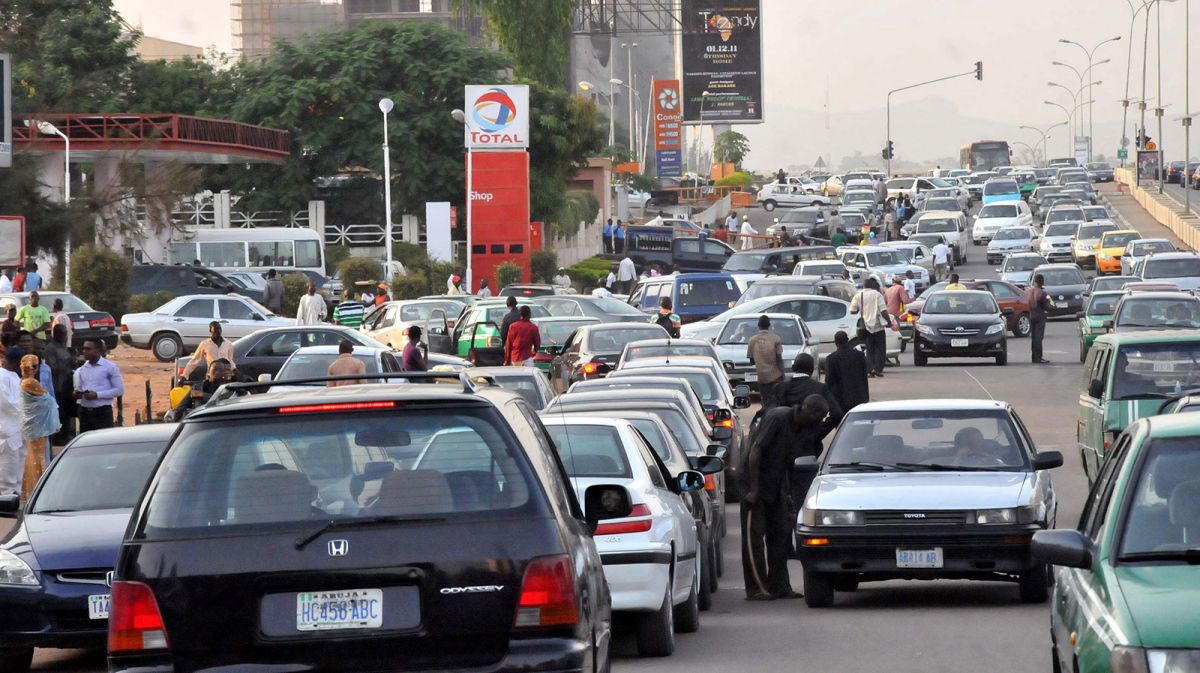As Nigeria’s states nationwide are experiencing serious fuel scarcity, new reports emerged on Monday, March 2, 2015 that a combination of policies from Nigeria’s Central Bank and the high level of indebtedness of product marketers to some banks led to the low supply and circulation of the product.
Because of the large debt, most of the banks have refused to issue Letters of Credit to oil marketers to enable them import the fuel.
According to Vanguard reports, a credible source at the Petroleum Products Pricing Regulatory Agency (PPPRA), disclosed that “the national fuel consumption level is predicated at 40 million litres daily and this is shared at ratio 50:50 between NNPC and other petroleum products marketers.
“Against the foregoing, available record shows that at the moment, NNPC is meeting its allocated ratio while other marketers have blatantly refused to contribute a drop of their own quota”.
The move followed refusal by banks to extend any further credit to oil marketers until a large part of the N264 billion, including the foreign exchange differentials and interest charges have been paid.
The N264 billion is the total invoice submitted to government by oil marketers for subsidy reimbursement for the month of January . The amount is largely funded from the banks, which has become a growing concern for
the Central Bank of Nigeria (CBN), which directed banks to rein in their exposures to the energy sector — oil, gas and power to avoid another round of distress in the system.
The figure is still rising as government is also meant to reimburse them about N6.5 billion more, representing the N10/litre shortfall suffered by the marketers from existing stock on account of reduction in the pump price for PMS from N97 to N87/litre on January 19.
Against this recent development, Minister of Finance, Dr. Ngozi Okonjo-Iweala, met with the Central Bank of Nigeria and bank chiefs last week in Lagos, to plead with them to continue to support the oil marketers to enable them bring in more products, since the nation’s refineries cannot meet the domestic demand of the people alone.
However, a party to the meeting said that “the body language of the banks did not show that they wanted to do anything until government acted.”
Accordingly, government is being forced to pay off N100 billion out of the N264 billion owed marketers as quickly as possible to enable them bring in more products, which it promised to offset up till the end of March.







